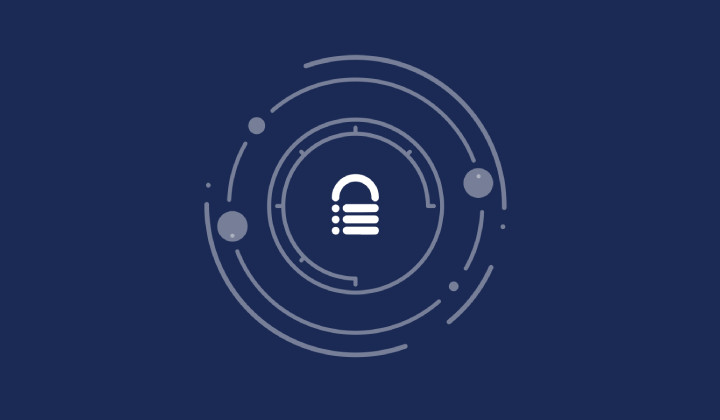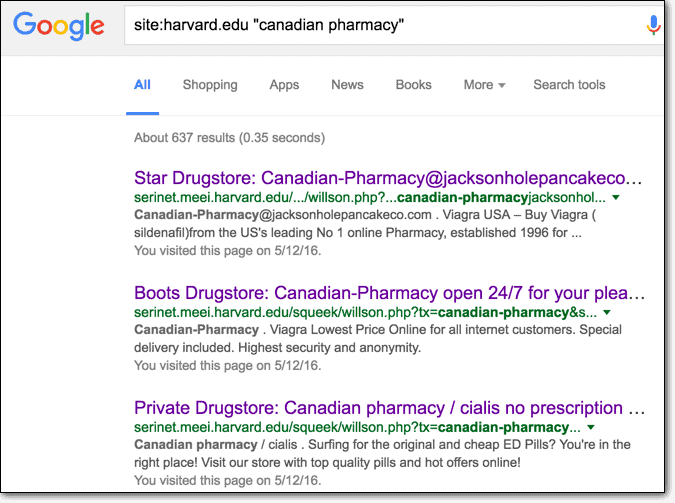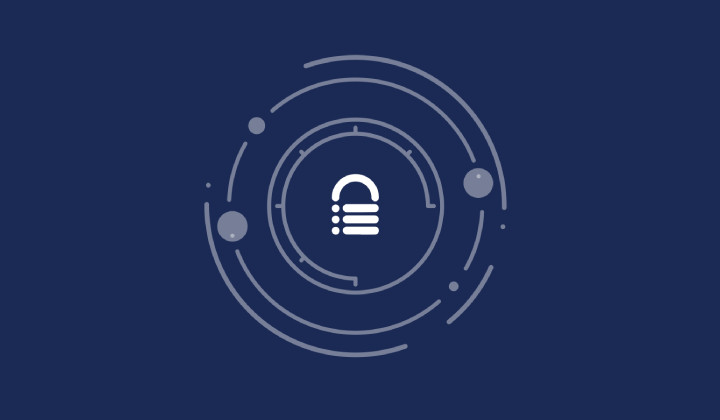What does WordPress malware do to your website performance?
by
7-layers of Security for Your WordPress Site
Your website needs the most comprehensive security to protect it from the constant attacks it faces everyday.

In terms of website security, a hack is the big bad consequence of insufficient or no security that everyone wants to avoid. But before we get into how to secure your site, it is important to understand what happens if your website gets compromised.
But Is it as bad as everyone says?
The short answer is – YES.
A hack can have long-lasting effects on your business as a whole and can be a massive headache in the short run as well.
TL;DR: The impact of malware on WordPress website is wide-ranging and can result in more than just downtime. In worst-case scenarios, hacks have led businesses to shut doors. To avoid hacks and malware, be aware of the malware impact on your business as a whole.
But, how does your website even get hacked?
Your WordPress website is made up of several files and databases that help your website operate efficiently. Each file has a function and all these files work together to create the experience of your website.
Think of it like clockwork gears. Each gear helps the entire mechanism function more efficiently.
So now what happens when a bad file or code is injected into your website?
The clockwork mechanism would falter, right? That is what a hack looks like. A hack is the result of attackers gaining access to your website through a specific file or code known as malware. And it can have damaging effects on your business if not taken seriously.
Related read: How to check if your site is hacked?
What is malware?
Websites are a feat of modern technology. We use them so often today that we forget just how amazing it is to be able to have something as complex and elegant functioning as a WordPress website.
So naturally, something like this can face issues, but there are different kinds of issues that may occur in a WordPress website. One is a file or code that may unintentionally cause problems, either due to inefficiencies in the code or incompatibility with the program. In any case, these are known as bugs. They may be inconvenient or even damaging but they are unintentional and are constantly rectified.
The other kind of issue that a website may face is the files or code that are intentionally designed to cause damage. These are known as malware and are used by hackers or attackers with malicious intent to gain access to your website.
Why you should worry about malware?
Malware is a common threat, but not one that can be ignored. The impact of malware on WordPress websites and on your business can be wide-ranging and have consequences that affect your business’s bottom line if not rectified in time.
If you think that your small website is safe because hackers could not possibly gain anything from attacking your website, you are putting your website at risk. Attackers can gain a lot out of even smaller websites by making very little effort.
But the question is, is it worth you risking your website over chance?
Let us see what exactly is at stake if your site is hacked.
What does WordPress malware do?
There is no one set way in which malware impacts your WordPress website. Neither can you count on malicious actors to be consistent in their ways. Hackers keep updating their techniques in order to counter the security measures that you may take.
Therefore, malware can have far-reaching effects which can range from website downtime to losing customers.
It is necessary to understand how malware can damage your website and business in different ways. Let’s first take a look at the impact of malware on WordPress website.
Impact of malware on WordPress website
Most often, you may not even realize that your site is hacked until it is flagged or starts losing a lot of traffic. But a hack will definitely start deteriorating your website almost immediately. You will see the hack affecting your SEO and traffic in the following ways.
User redirects to spam sites

One of the most common ways that hacks show up is through spammy ads on your website and redirects to pharma websites. Hackers use your website to reach out to your visitors and redirect them to another site, usually peddling illegal items. Not only does it result in a horrible user experience for your visitors, but it can also cause browsers to flag you as a deceptive website and lead to a massive drop in your traffic.
Loss of traffic
One of the first signs of a hack is a sudden drop in traffic. The drop in traffic could be a result of the malware sabotaging your website in various ways like piggybacking on your SEO rankings, defacing your website, or using your IP address to attack other websites, causing it to get flagged. If your website is flagged by browsers or search engines, you will see a further drop in traffic.
Website slows down
Another major symptom to look out for is your website’s loading speed. If your website suddenly starts taking forever to load, it could be because of a hack. When hackers inject malware onto your website server, it overloads the server and slows down your website.
Google Blacklist

Your website getting blacklisted can be the immediate effect of malvertising on your website. Google does not want to send its users to unsecured websites so if your site is hacked, Google will show up a big warning that deters users from visiting it or not list your website in its search engine results at all. Given that most websites rely on Google for their organic traffic, this can be disastrous for your business.
SEO Rankings
If Google lists your website as dangerous, your traffic will naturally drop. But with spammy ads on your website disrupting the user experience, visitors will not want to return to your website. All of this will contribute to your SEO rankings tanking overnight. So if your site gets hacked, all your SEO strategy and effort can go down the drain.
Downtime
Certain malware can make your website perform erratically or break down completely. This can result in downtime until you can restore your website.
Additionally, hacks are flagged by webhosts in order to secure their servers. As soon as webhosts detect a hack on your website, they will take your website offline in order to mitigate the damage. This will lead to an indefinite amount of downtime for your website which can result in loss of customers and credibility.
IP blacklisting
Firewalls often blacklist IP addresses that seem suspicious or deploy phishing attacks and spam. Hackers know this and have started using newer IP addresses for attacks as they are not blacklisted. If your site gets hacked, your IP address could be used to attack other websites or spam emails and firewalls could flag you as a malicious IP and blacklist you.
Impact of malware on business
The impact of malware on WordPress websites is not just limited to immediately visible symptoms. Malware can have long-term effects that affect your business more than just virtually.
If you don’t realize how malware can affect your business interests directly, you won’t be able to prepare for hacks well. Let’s take a look at the business impact that malware can have.
Loss of revenue
There are many ways in which a hack can cause your website to lose revenue. There are the obvious ways—like customers going away when they see that your site is down, or downtime costing you sales and increasing your conversion cycle.
But there are many hidden costs to a hack too, especially if your reputation is damaged. If customers lose trust in your business, you will lose revenue in long term as well.
Additional costs
There are various costs associated with a hack, especially in terms of damage control. But a hack can also result in theft of intellectual property and designs.
Additionally, you may need to pay for PR or legal fees and involve law enforcement if the hack is bad enough. And sometimes a hack can create a massive cost sink, which some businesses are unable to recover from.
Loss of trust
Possibly one of the worst consequences of a hack, losing your customers’ trust is almost as bad as losing their goodwill.
If your customers cannot trust you to hold on to their banking information or personal data safely, they will simply stop visiting your site, and choose one that’s more secure. While hacks don’t always scare away every single one of your customers, they do cause a noticeable drop in traffic and sales.
Loss of trust also hits your brand image. If the hack is minor, your brand image will take a temporary hit. But sometimes the reputation of getting hacked stays. Under Armour’s fitness app MyFitnessPal got hacked in 2018, and the company has still not been able to shake it off.
Excessive consumption of server resources
Servers are critical to the functioning of your website. They’re the tech that allows people to see your website when they type in the address.
If a hacker decides to target your servers, they can do many things, ranging from taking your site down, which can be disastrous for the business but still manageable, to repurposing your servers to spread malware or viruses, which not only will incur you massive costs but also get you blacklisted.
Loss of investment
Websites are complex and take a lot of time, money, and effort to get off the ground. If a hack happens, all of it goes down the drain. While rebuilding the website is easier than building it for the first time, that’s still a large investment you’ll need to make for no good reason.
Legal issues
There are several types of legal issues you may wind up facing if your site gets hacked. The first is, the actions you need to take to mitigate the damage caused by the hack such as a data breach. These can often turn into long-term costly cases, requiring large teams of lawyers for very little payout.
The second legal issue you may face is that of the various laws that protect customer interests like GDPR in the EU and CCPA in California.
These laws hold businesses responsible for the customer data they use and store. So if any of your customers have had their banking details or other data exposed in the hack, you may face legal action.
And if it is found that the customer data has been exposed due to negligence on your end, you may be liable for large fines by the government or similar authorities of the region.
The third legal issue is your responsibility to your directors, board members, and other stakeholders. By informing everyone relevant of what has happened, you can perform damage control and make sure that all of them take steps on their end to protect themselves. But if the hack is large scale, you can get sued by any of these parties for negligence.
Cleanup costs
Cleaning up after a hack can be expensive. Sometimes even more so than what you invested to build the site in the first place.
Certain experts charge a premium fee per cleanup and it can be a major expense on top of all the loss you have already incurred.
Impact of malware on individuals
On top of all the consequences a hack can have on your business, it can also jeopardize the safety of your customers and other stakeholders individually.
When hackers go after data, they don’t distinguish between business and personal data, they only see the value of the data available. So if your business stores any personal data, whether yours or your customers, a hack can put you at risk.
Data breach
Data breaches are one of the most common consequences of a hack. Although a breach is usually limited to business information, sophisticated attacks can uncover personal information and documents as well.
This can lead to identity theft and your and your visitors’ data being put on the dark web for sale, which can put you and your visitors in physical danger too.
Personal credentials
Identity theft can expose details like your address, financial information, buying patterns, voting patterns, and more. This in itself is a huge security risk, but it can also put you at legal risk in worst-case scenarios.
Additionally, if your personal credentials include your financial information, it can be used to hack into your bank accounts and lead to monetary losses for you.
What to do next?
If you have noticed any of the symptoms mentioned above, you can confirm whether or not your site is hacked using MalCare’s free scanner. In case you detect malware, you can always opt for an auto cleanup to get rid of malware at a click.
If your website seems to be functioning properly, you should invest in a good firewall that will prevent any future security incidents and allow you to focus on your business rather than security.
Besides these, you can also take a few more security measures given below:
- moving your site from HTTP to HTTPS,
- protecting the login page,
- hardening your WordPress website.
And we strongly suggest following this guide – Secure Your WordPress Site With wp-config.php.
FAQs
How does malware affect WordPress?
WordPress malware can allow attackers to gain access to your website and use your website resources to further spread the malware or attack other websites. It can also deface your website, slow it down, riddle it with spammy ads and redirects, and overall wreak havoc with your website.
Can WordPress websites have viruses?
Yes, WordPress websites can have viruses. These are known as malware infections and they act in various ways depending on the type of malware. These malware infections can cause your website to glitch or even break down, as well as get them blacklisted by search engines, browsers, and webhosts.
Can WordPress sites be hacked?
WordPress sites can get hacked if infected by malware. Malware is a piece of code or a file that is intentionally designed to cause damage to a website or program. When injected into a website, the malware creates vulnerabilities within the website and allows access to attackers and malicious actors.
How can you detect malicious code or malware themes?
If you think your site is hacked, you can use a security plugin such as MalCare to scan your website and detect malicious code or inauthentic themes that may pose a threat to your website.
Why do WordPress sites get hacked?
WordPress sites can get hacked for a number of reasons, such as:
- Using nulled or free themes
- Bugs in the website code or extensions
- Existing vulnerabilities in the themes or plugins
- External attacks
- Infrequent updates
- Lack of a firewall
Category:
Share it:
You may also like

MalCare Ensures Unmatched Protection Against User Registration Privilege Escalation Vulnerability
Imagine discovering that your WordPress site, which should be secure and under strict control, has suddenly become accessible to unauthorized users who have the same administrative powers as you. This…

MalCare Ensures Proactive Protection Against WP-Members XSS Vulnerability
MalCare continues to protect its customer sites from all kinds of attacks, even the ones exploiting zero-day vulnerabilities. The recent stored cross-site scripting (XSS) vulnerability found in the WP-Members Membership…
![Top 9 ManageWP Alternatives To Manage Multiple Sites Easily [Reviewed]](https://www.malcare.com/wp-content/uploads/2022/12/malcare-default-image.jpeg)
Top 9 ManageWP Alternatives To Manage Multiple Sites Easily [Reviewed]
ManageWP is a popular name in the WordPress maintenance plugins market. People love how much you get for a free plan, how easy it is to set up, and how…
How can we help you?
If you’re worried that your website has been hacked, MalCare can help you quickly fix the issue and secure your site to prevent future hacks.

My site is hacked – Help me clean it
Clean your site with MalCare’s AntiVirus solution within minutes. It will remove all malware from your complete site. Guaranteed.

Secure my WordPress Site from hackers
MalCare’s 7-Layer Security Offers Complete Protection for Your Website. 300,000+ Websites Trust MalCare for Total Defence from Attacks.








